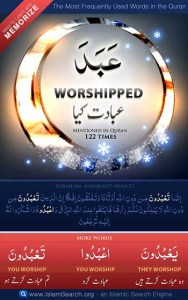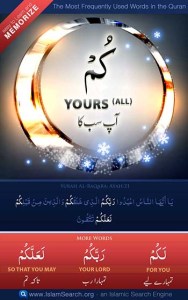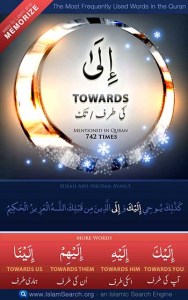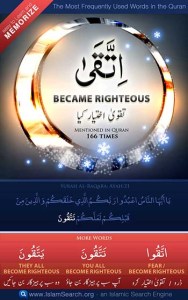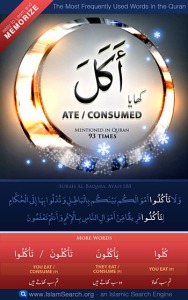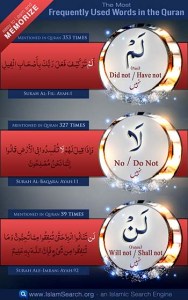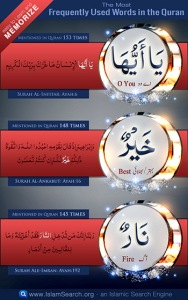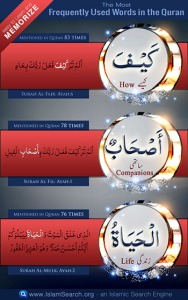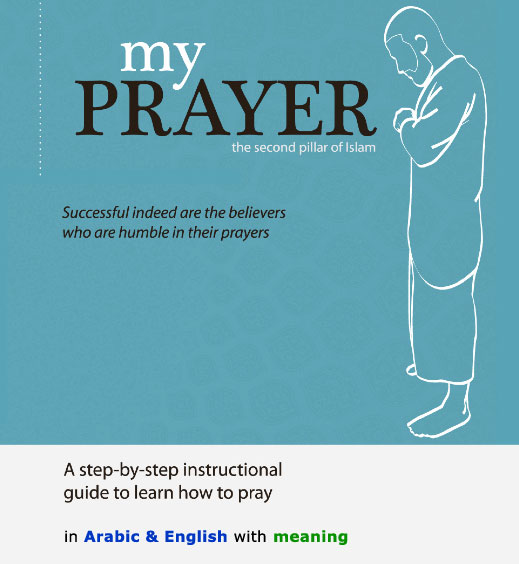Category: Interesting
Credits: Video shared from Islamic Guidance YouTube channel

حَسْبُنَا اللَّهُ وَنِعْمَ الْوَكِيلُ
Allah (Alone) is Sufficient for us, and He is the Best Disposer of affairs (for us).”
–Surah Al ‘Imran (3:173)
In the event of fear and anxiety one should seek the help of Allah and frequently recite this ayah of the glorious Qur’an “Hasbunallahu wa Ni’mal Wakeel” “Allah (Alone) is Sufficient for us, and He is the Best Disposer of affairs (for us).” (3:173).
Ibn ‘Abbas (May Allah be pleased with them) said: When (Prophet) Ibraheem(عَلَيْهِ وَسَلَّم) was thrown into the fire, he said: “Allah (Alone) is sufficient for us, and, He is the Best Disposer of affairs.” So did Messenger of Allah, Muhammad (ﷺ), when he was told: “A great army of the pagans had gathered against him, so fear them”. But this (warning) only increased him and the Muslims in Faith and they said: “Allah (Alone) is sufficient for us, and He is the Best Disposer of affairs (for us)”. [Al-Bukhari].
Abu Sa’id Al-Khudri (May Allah be pleased with him) reported: Messenger of Allah said, “How can I feel at ease when the Angel of the Trumpet, (Israfil) has put his lips to the Trumpet and is waiting for the order to blow it”. He (the Prophet) perceived as if this had shocked his Companions, so he told them to seek comfort through reciting: ‘Hasbunallahu wa Ni’mal-Wakeel [Allah (Alone) is Sufficient for us, and He is the Best Disposer of affairs (for us)]“. (For Arabic Text, read Hadeeth No. 409 here )
If you ask them: “Who created the heavens and the earth?” they will surely answer: “Allah.” Tell them: “What do you think, then, of the deities whom you call upon instead of Allah? If Allah should will that an affliction befall me, will those deities remove the harm inflicted by Him? Or if Allah should will that I receive (His) Mercy, will they be able to withhold His Mercy from me?” Say: “Allah is sufficient for me; those who have to put their trust, let them put their trust in Him. (Surah Az Zumar: 38)
A true Muslim understands very well that Allah alone is the Bestower and Withholder of Mercy, and He alone is the Remover of Harm and Affliction. Reciting Hasbunallahu Wa Nimal Wakeel provides the healing touch that is very much necessary in one’s life.
By putting one’s complete Trust in Allah, by leaving matters unto Him, by seeking only His grace and mercy, by accepting His decree, by submitting to His Will – a Muslim can equip oneself to face the challenges of life.
We have listed Most Frequently Used Words in Quran from website islamsearch.org (Jazakallahu Khairan)
In Sha Allah It will make you little easy to understand while reading/listening Quran.
Note:
We are not teaching Arabic Grammar nor we claim that this is the sole meaning of these words.
We are trying our best to bring you those words with its meaning which are used frequently in the Quran.
| When reading the holy quran, we are supposed to stop (means the reader takes a breath with the intention of continuing reading) only when it is allowed to do so.
There are different kind of signs on top of the word to indicate if it possible to stop or not:
SAJDA
When reading the holy Quran we have to make sajda if we find this sign To explain this we will look at the example below:
Now to the explanation , this sign
Lengthening (Madd):Madd means lengthening of the sound . It occurs whenever we encounter a long vowel .. and when we encounter a “Madd” sign:
|
 |
What is the source of Kalimah’s ?
Assalamu alaykum
Actually, these kalimas were compiled together for children to memorize and learn the basic fundamentals of a Muslim’s beliefs. They are not found altogether in any one hadith or narration from the Prophet (peace be upon him). However, some of them can be found individually in the narrations. To see the virtues of some of these kalimas one can read the Chapter of Dhikr in the Fada’il A’mal of Shaykh Zakariya Khandelwi.
Children are told that memorizing these kalimas will come in use in the grave. This is to encourage them to learn them quickly. Yes, if someone is to act on the dictates of these kalimas after memorizing them, then surely they will come in use in the grave.
And Allah knows best.
Wassalam
Abdurrahman ibn Yusuf
What are the 6 Kalimah’s ?
1- First kalima (Tayyab)

Laaa Ilaaha Illa-llaahu Muhammadur-Rasoolu-llaah
There is none worthy of worship except Allah and Muhammad is the Messenger of Allah
2- Second Kalima (Shahadat):

Ash-hadu Al-laaa Ilaaha Illa-llaahu Wahdahoo Laa Shareeka Lahoo Wa-Ash-hadu Anna Muhammadan ‘Abduhoo Wa Rasooluhu.
I bear witness that there is none worthy of worship except Allah, the One alone, without partner, and I bear witness that Muhammad is His servant and Messenger
3- Third Kalima (Tamjeed):

Subhaana-llaahi Walhamdu Lillaahi Walaaa Ilaaha Illa-llaahu Wallaahu Akbar. Walaa Hawla Walaa Quwwata Illaa Billaahi-l ‘Aliyyil ‘Azeem.
Glory be to Allah and all praise be to Allah, there is none worthy of worship except Allah, and Allah is the Greatest. There is no might or power except from Allah, the Exalted, the Great One.
4- Fourth Kalima (Touheed):

Laaa Ilaaha Illa-llaahu Wahdahoo Laa Shareeka-lahoo Lahu-l Mulku Walahu-l Hamdu Yuhyee Wayumeetu Wahuwa Hayyu-l Laa Yamootu Abadan Abada. Dhu-l Jalaali Wal Ikraam. Biyadihil Khair. Wahuwa Alaa Kulli Shai-’in Qadeer.
There is none worthy of worship except Allah. He is alone and has no partner. To Him belongs the Kingdom and for Him is all praise. He gives life and causes death. In His hand is all good and He has power over everything
5- Fifth Kalima (Astaghfar):
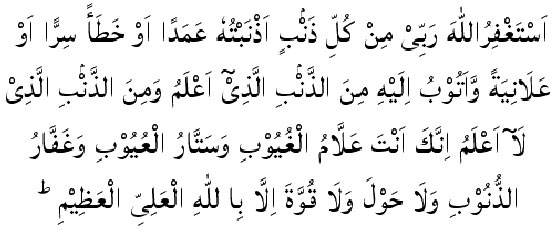
Astaghfiru-llaaha Rabbi Min Kulli Dhambin Adhnabtuhoo ‘Amadan Aw Khata-an Sirran Aw ‘Alaaniyata-wn Wa-atoobu Ilaihi Min-adh Dhambi-l Ladhee A’lamu Wamina-dh Dhambi-l Ladhi Laaa A’lamu Innaka Anta ‘Allaamu-l Ghuyoobi Wasattaaru-l ‘Uyoobi Wa Ghaffaaru-dh Dhunubi Walaa Hawla Walaa Quwwata Illaa Billaahi-l ‘Aliyyil ‘Azeem.
I seek forgiveness from Allah, who is my Creator and Cheriser, from every sin I committed knowingly or unknowingly, secretly or openly. I also seek His forgiveness for all sins which I am aware of or am not aware of. Certainly You (O Allah!), are the Knower of the hidden and the Concealer of mistakes and the Forgiver of sins. And there is no power and no strength except from Allah, the Most High, the Most Great.
6- Sixth Kalima (Radd-e-Kufar):
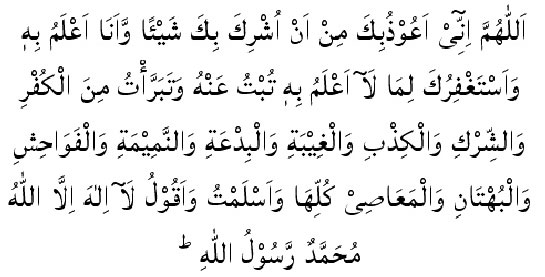
Allaa-humma Inneee A’udhu-bika Min An Ushrika Bika Shay-awn Wa-ana A’lamu Bihee Wa- astaghfiruka Limaa Laaa A’lamu Bihee Tubtu ‘Anhu Wata-barraatu Mina-l Kufri Wash-shirki Wal-kidhbi Wal-gheebati Wal-bid’ati Wan-nameemati Wal-fawahishi Wal-buhtaani Wal-m’aasi Kulli-haa Wa-Aslamtu Wa-aqoolu Laaa Ilaaha Illa-llaahu Muhammadu-r Rasoolu-llah.
O Allah! I seek refuge in You from that I should ascribe any partner with You knowingly. I seek Your forgiveness for the sin of which I have no knowledge. I repent from it. And becoming disgusted of disbelief and idolatry, lying and backbiting, innovation and slander, lewdness and abomination and all other acts of disobedience, I submit to Your will. I believe and I declare that there is none worthy of worship except Allah and Muhammad is the Messenger of Allah.
Source: http://www.quranleads.com/index.php?page=the_6_kalimas
What is the difference between Tarteel vs Tajweed ?
- Tajweed is the science of the rules of recitation of the Quran. Reciting with tajweed means that one is applying the rules of tajweed. A related word is “mujawwad”.
- Tarteel means reading as the Prophet (PBUH) used to recite and as he was ordered to by Allah. [wa rattil il-Qurana tarteela] (Muzzammil 4). The tafsir of this aya (according to ibn kahteer) is to recite the Qur’an slowly, making the letters clear because this is an assistance in understanding and pondering the meaning of the Qur’an. A related word is “Murattal”.
- When asked about the meaning of Tarteel, Ali (Radhiallahu Anhu) replied, ‘It means that the Qur’an should be recited with Tajweed and with due observance to the rules of Waqf (pausing or stopping at the end of the verse).’
- In this sense, there is no difference between the two words.
- We will use the term Tajweed to refer to the science (the group of rules) that we wish to master in order to recite with Tarteel.
- The most valuable learning and reciting is the one performed by carfully observing language, mind and heart. The language takes care of the accuracy of the sounds and words, mind interprets their meaning and the heart keeps their instructions, advices and warnings. So the language speaks, mind recognizes and heart receives the moral message.
ٱلَّذِينَ ءَاتَيۡنَـٰهُمُ ٱلۡكِتَـٰبَ يَتۡلُونَهُ ۥ حَقَّ تِلَاوَتِهِۦۤ أُوْلَـٰٓٮِٕكَ يُؤۡمِنُونَ بِهِۦۗ
|
“Those unto whom We have given the Scripture, who read it with the right reading, those believe in it. And whoso disbelieveth in it, those are they who are the losers. (Al-Baqara, 121).
Narrated Uthman, Prophet Muhammad () said: ‘The best among you are those who learn the Qur’an and teach it to others’ (Sahih Al Bukhari vol 6, book 61, no. 545) Tajweed is the Science of reading Qur’an correctly. Learning how to recite the Qur’an correctly is an obligatory act upon EVERY Muslim.
reference: http://tajweedstudy.com/
Who was the Prophet Idris AS?
No one knows with certainty since below 2 passages are the only references to him in the entire Qur’an.
And [mention] Ishmael and Idris and Dhul-Kifl; all were of the patient. And We admitted them into Our mercy. Indeed, they were of the righteous. (Qur’an 31:85-86)
And mention in the Book, Idris. Indeed, he was a man of truth and a prophet. And We raised him to a high station. Those were the ones upon whom Allah bestowed favour from among the prophets of the descendants of Adam and of those We carried [in the ship] with Noah, and of the descendants of Abraham and Israel, and of those whom We guided and chose. When the verses of the Most Merciful were recited to them, they fell in prostration and weeping. (Qur’an 19:56-58)
Allah has praised Idris AS in the verses above and described him as a prophet and truthful. Our Prophets’ ancestral line meets him as many of the genealogists mentioned it. Muslim commentators say that Idris AS was deeply devoted to his Lord’s worship and law; in fact his name means “one who studies or teaches”.
After Adam and Shiith, Idris was the first man to be sent as Prophet, peace be upon them all.
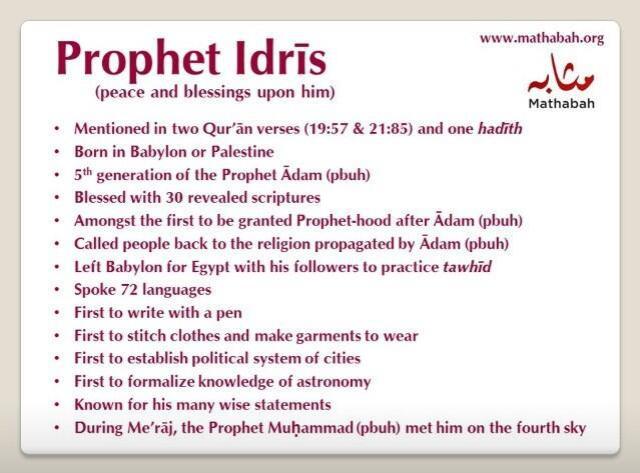
Allah Ta’ala says in the Holy Qur’an:
ورَتلناه ترتيلا
“And with tarteel We have revealed it i.e. the Qur’an”
Also we have been ordered to recite the Qur’an with tarteel; Allah Ta’ala says,
ورتل القرأن ترتيلا
“And recite the Qur’an with tarteel”
From the above two verses, it becomes obligatory on us to recite the Qur’an with tarteel.








